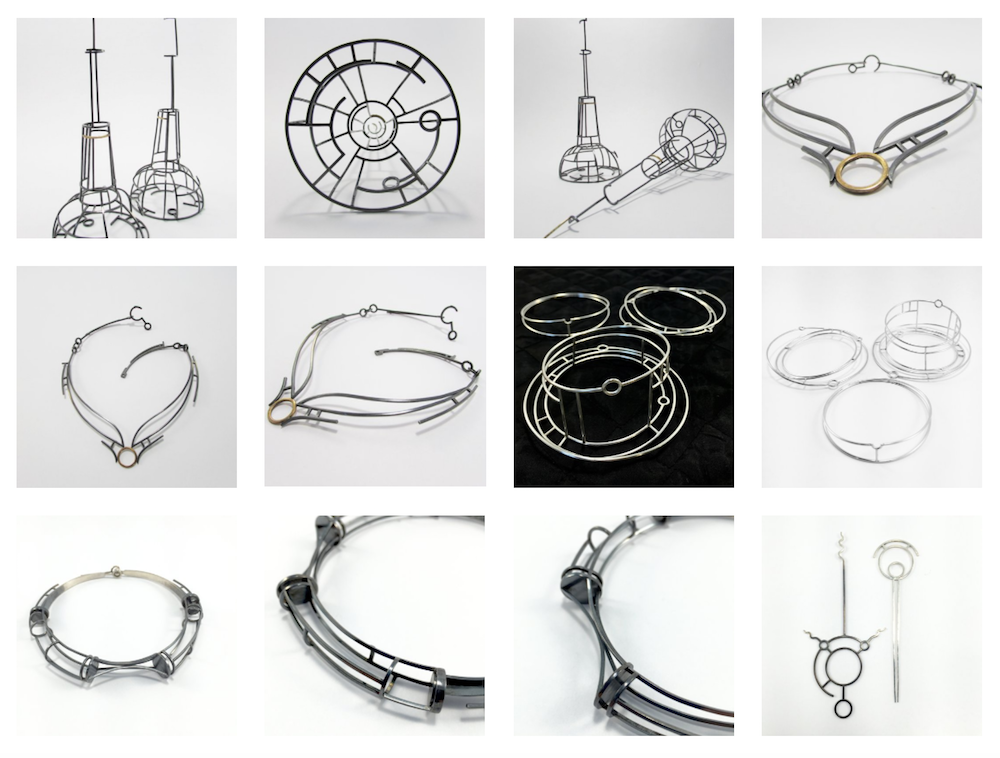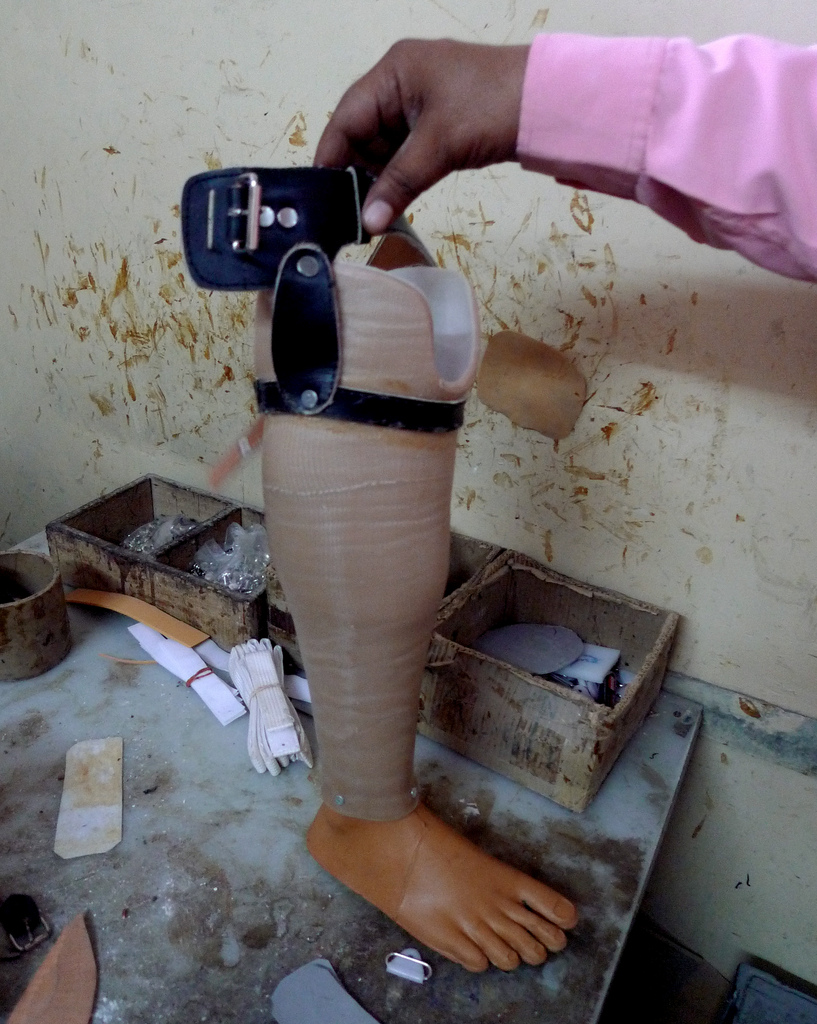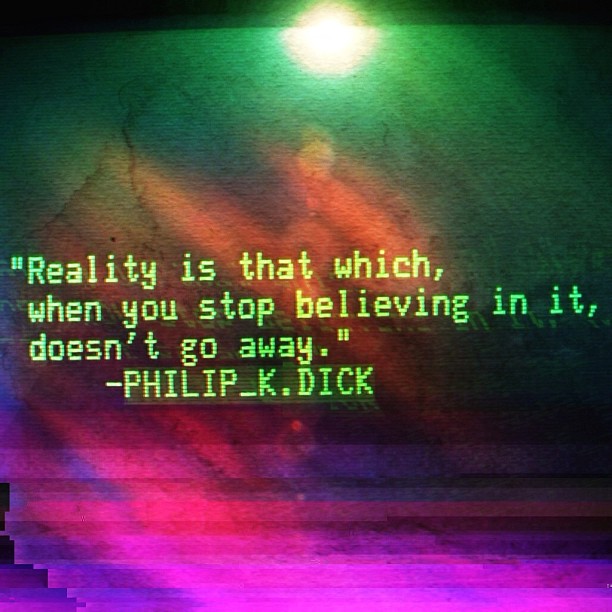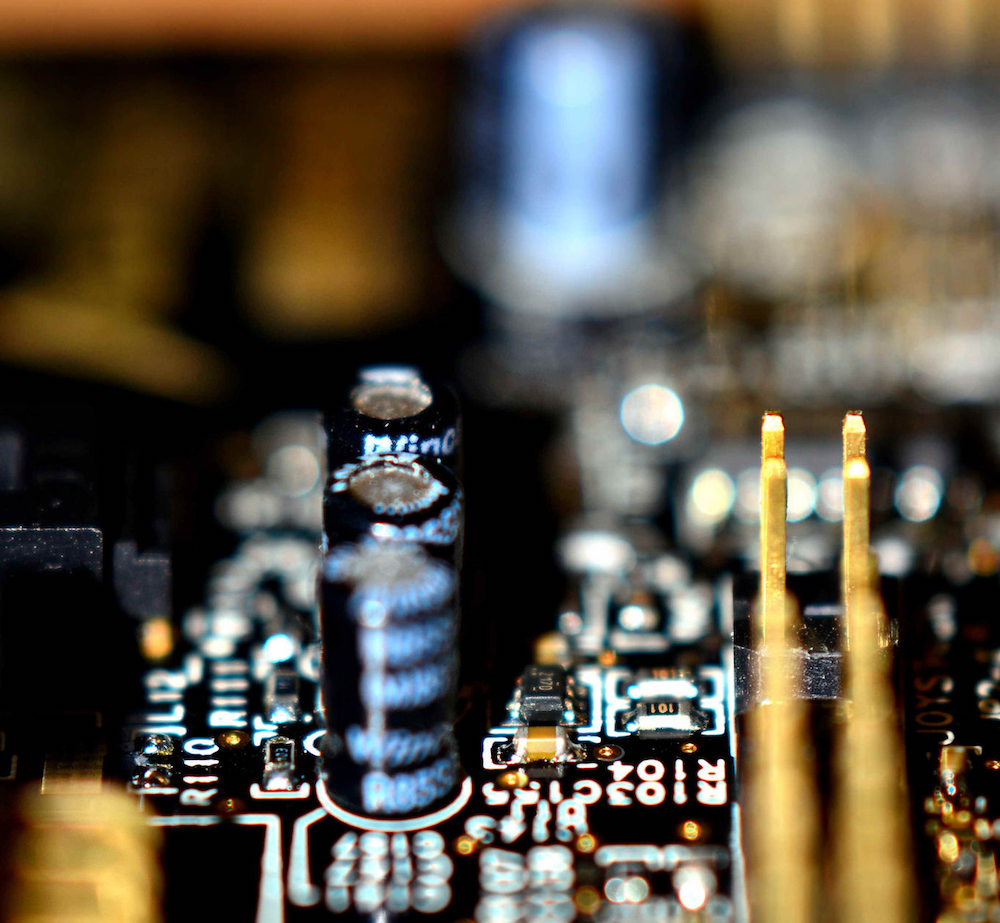“Dissonance series is my body of work that explores a broken, futuristic dystopia where adornment is used as a means of coping with the environment around us. Dissonance is about a disharmony within the self and the coping mechanisms created.” — Alice Argyros
I interviewed Alice Argyros about the cyberpunk-inspired jewelry she creates. Since we did this via email, I’m just going to omit my questions and present Argyros’ answers like they’re an essay (lightly edited for readability). She said…
I actually had no idea what “cyberpunk” was until Asher of ReTech told me that my work leans in that direction. There was a boom of steampunk about ten years ago that I found intriguing. However, it was short-lived with all the mass production and nonsensical aesthetic decisions. There were some really great stories and comic books that came out of it, though.
Perhaps it’s the stories more than anything that draws me into the realm of cyberpunk. I currently have a collection of jewelry based on my own utopian world where people don’t pop pills to solve problems, they just alter the world around them. [Editor’s note: You can pry my pills out of my cold, dead hands! Venlafaxine forever.]
But as far as aesthetics, I’ve always loved the strong bold lines of Art Nouveau and dark tones of macabre art. Sergio Toppi is a huge inspiration of mine, with his illustrations utilizing asymmetrical balance and broken lines.
I didn’t always have this style with my jewelry. I got into metalsmithing back in college and it’s been a slow-moving career choice since then. There’s a fine line between doing what you want to do and doing what sells.
I have a saying, “My hands know more than my head.” Take away everything else in our lives and what we have left is our abilities; that is what defines us. I’m okay with being incredibly low-tech. I’m still able to do a lot of things despite being behind with the tech times. All I have is a website and Instagram. I don’t bother doing Pinterest and I just found out about 4chan and Reddit. Still have no idea what they are… really.
It’s also about being the kind of maker I want to be. I’m not into production lines and shipping out hundreds of little packages every month. Slow progress helps me keep everything in check, to choose my next step rationally.
Despite being low-tech, there is so much in the digital world that is absolutely fascinating. For example, there are incredibly talented artists who utilize technology to make things faster but are also more intricate. Check out the work of Nervous System when you get a chance. [Editor’s note: I also highly recommend this.]
In short, I don’t really feel downsized or inadequate for not utilizing technology to my advantage. Working with my hands is what makes me feel good. I know some of my more detailed works could be easily cut out with a laser cutter. It would certainly make the time go by faster.
But, not only is it an expensive piece of equipment, there is a part of me that would just be exhausted sitting in front of a computer instead of physically sitting at a bench and designing the work. I like to get my hands dirty.
I don’t really like to pass the time surfing the internet. So, I kind of hear about these outlets through conversations with people… which takes a while. It’s interesting to see what people are up to and some of these outlets are really good at showcasing that creativity. That’s why I to stick more to Instagram; it’s just an immediate way to see what people are doing without a lot of the drama.
Once you get into other social outlets, the temperature quickly changes. That’s why I steered clear of a lot of social media. I joined Facebook back when it came out years ago, and it was interesting to see the flow of information. But it has a way of pandering to our lowest, most basic pleasures by allowing people to pick and choose a reality based on their beliefs. Maybe it’s self-inflicted propaganda?
I don’t know, either way it got too difficult dealing with people always having an answer for everything but never questioning anything. That’s why I’ve limited which areas to expend my time. Another reason is the false sense of accomplishment we can get from these outlets. As an artist, it can be helpful to showcase what we do on these outlets but if we’re not actually communicating with galleries, emailing curators, and making strong connections, we aren’t doing much at all. We can’t get paid in “likes”!
I could appreciate the business side of being an artist a lot more if I didn’t have a day job. I’ve always enjoyed math but it’s difficult navigating taxes, licenses, and legal issues. Right now any free time I have, I’d rather spend it on designing and making instead of crunching numbers and filing papers.
As far as marketing goes, I’m pretty terrible at talking about my work. Artist markets can be difficult to navigate. I’m confident in my work but I’m not always confident when talking to people about my work. That’s the feeling I get from a lot of other artists and independent creatives as well. Luckily we have a local service here that caters towards helping women and small business owners get their feet on the ground. That’s been a huge help.
My closest cousin died a year back. She was the older sister I never had — dark, punk, goth princess with dreams of heading to the stars. I think it hurt me more than I ever though it would have.
I needed to get out of a slump. I took the attitude of, “Fuck it, I’m going to make what I want to make, regardless of what other people want.” This new turn helped me get back on track and has made me develop a stronger hold on the kind of artist I am. Whenever I hit any rough patches, I just tune into that inner punk nature we both had.
Go follow Argyros on Instagram and buy her jewelry.








